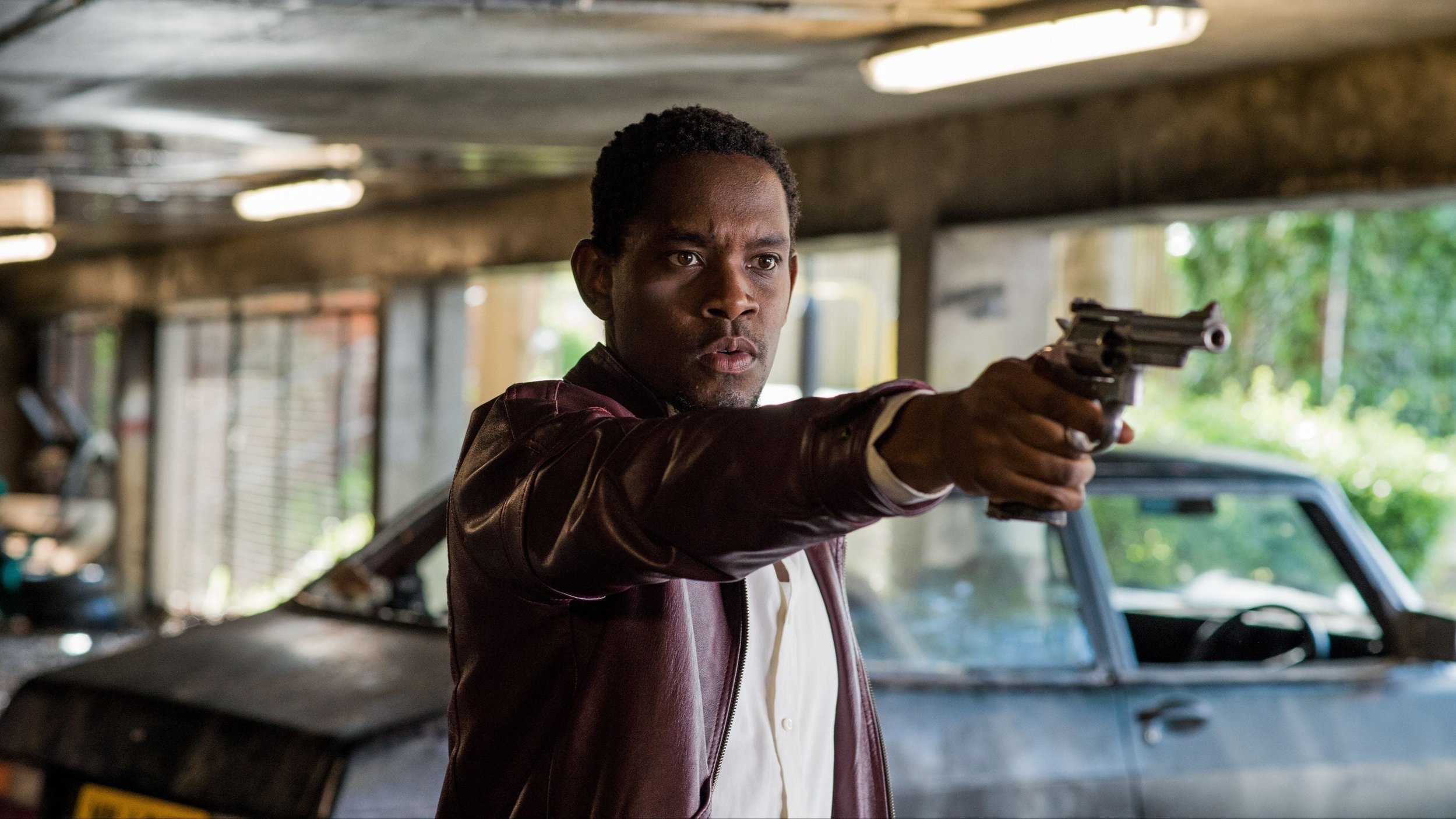Yardie
Life in Hackney as lived in the 1980s by immigrants from Jamaica.
As far as general audiences are concerned, the chief selling point of this film is that it is the first feature to be directed by the actor Idris Elba. That’s fair enough since, working closely with his photographer John Conroy and his editor Justine Wright, he conveys his enthusiasm for this new role. But, since this is a tale about Jamaicans living in Hackney in 1983 prefaced by earlier scenes shot in Jamaica itself, what will count most for viewers from that country will be the fact that, cast with due ethnic consideration, Yardie is a film hoping for an international success that will put Jamaica more firmly on the cinema map.
In point of fact, we have been here before with another drama showing violence but also featuring Jamaican music as a major selling point. Last time it was Perry Henzell’s The Harder They Come and it did make a mark, but that was back in 1972 so one certainly doesn’t begrudge the emergence of this comparable piece now. However, while some audiences will lap it up, Yardie never fully escapes from a problem related to its origins. Victor Headley’s original novel on which this film is based was a hit despite being published independently in 1992 but its telling of a story about a gangster was described as pulp fiction. Apparently Headley went to extremes in describing the violence of which his central character was capable, but this adaptation modified that and was designed to make him more sympathetic despite being conflicted in his outlook.
On screen, Yardie comes over as a conventional enough tale of a gangster and dealer in cocaine, D (Aml Ameen), who is sent to London by his boss King Fox (Sheldon Shepherd) to sell the drug to another bossman, Rico (Stephen Graham). Once there however, he follows his own course, in particular seeking out the man, Clancy (Riaze Foster), who during D’s childhood had killed his older brother, Jerry (Everaldo Creary). But, while this sets up the action, the film hopes to tell a moral tale in which D’s lifestyle is criticised by the wife who had moved to London earlier with their young daughter to find a better life. The wife is Yvonne played by Shantol Jackson.
The fact that D tells his own story in voice over allows for certain freedoms: a number of songs feature on the soundtrack making this a drama that does not rely on realism, Graham and Shepherd are allowed to give extravagant performances and at intervals the dead Jerry puts in brief ghost-like appearances. All of this will work for the right audience, but one suspects that many viewers will relish the action too much: the film indulges it enough to prevent the moral theme from being as serious and effective as it should have been. Even so, Ameen seizes the chance to play a central role and, aided by the fact that she has the best-written part, Shantol Jackson emerges as the most engaging player of all.
MANSEL STIMPSON
Cast: Aml Ameen, Shantol Jackson, Stephen Graham, Fraser James, Everaldo Creary, Sheldon Shepherd, Naomi Ackie, Riaze Foster, Nadine Marshall, Calvin Demba, Rayon McLean, Antwayne Eccleston.
Dir Idris Elba, Pro Gina Carter and Robin Gutch, Screenplay Brock Norman Brock and Martin Stellman, from the novel by Victor Headley, Ph John Conroy, Pro Des Damien Creagh, Ed Justine Wright, Music Dickon Hinchliffe, Costumes James Keast.
Warp Films/Studiocanal/BFI/BBC Films/Screen Yorkshire-Studiocanal.
102 mins. UK. 2018. Rel: 31 August 2018. Cert. 15.


